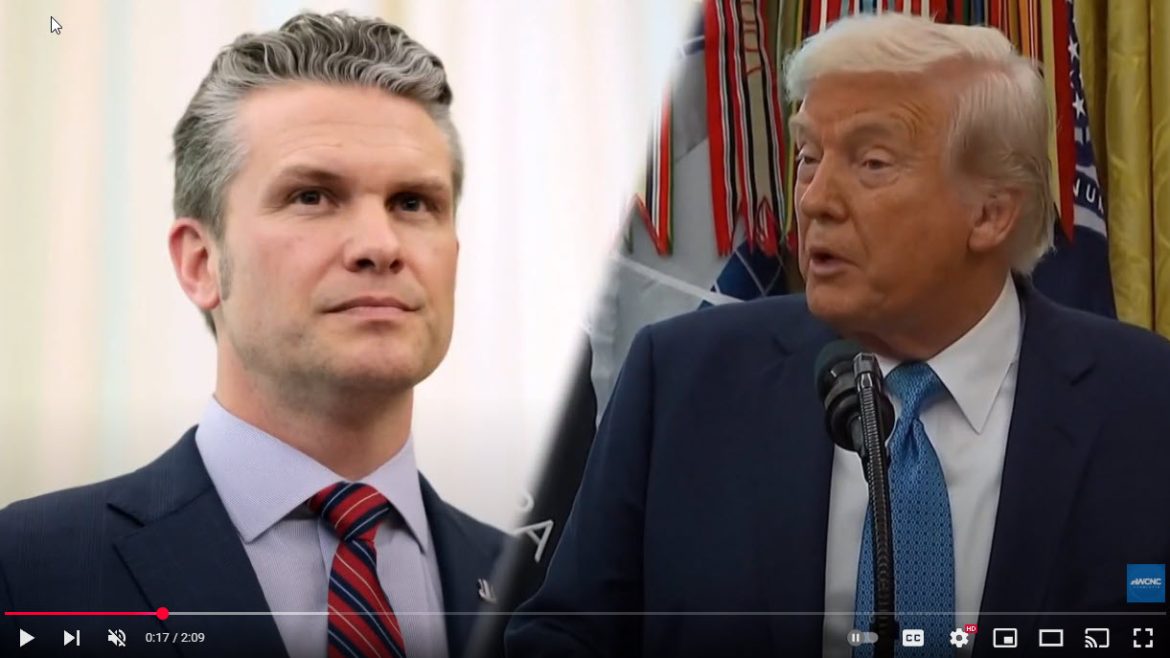President Donald Trump is standing firmly behind Defense Secretary Pete Hegseth after new reports claim Hegseth shared sensitive military information in a private Signal messaging chat, this time involving his wife and brother. The controversy has intensified scrutiny around the Pentagon and triggered calls for accountability, particularly from Democrats who demand Hegseth’s dismissal. However, the White House is dismissing the accusations as politically motivated leaks by what Trump calls “disgruntled workers.”
Speaking to reporters Monday, Trump brushed off the allegations as part of a broader smear campaign. “It’s just fake news. They just bring up stories,” Trump said. “I guess it sounds like disgruntled employees. You know, he was put there to get rid of a lot of bad people, and that’s what he’s doing. So you don’t always have friends when you do that.” Trump’s comments were echoed by White House Press Secretary Karoline Leavitt, who praised Hegseth for doing a “tremendous job” and reaffirmed the administration’s confidence in his leadership.
Vice President JD Vance also publicly backs Hegseth, dismissing rumors that the White House is searching for a replacement. “The president trusts Secretary Hegseth, and so do I,” Vance says during a press conference. “He’s committed to strengthening our military and holding people accountable, even when it ruffles feathers.”
The revelations stem from a series of internal leaks that have rocked the Pentagon in recent weeks. Earlier reports revealed that Hegseth had participated in Signal chats that included sensitive military discussions. This latest disclosure involves a second group chat with his wife and brother, reigniting questions about the security and judgment of the Pentagon’s top civilian leader.
While neither the White House nor Hegseth denies the existence of the chat or the content shared within it, both maintain that no classified material was disclosed. However, some defense officials and lawmakers remain unconvinced, warning that the repeated use of unsecured channels could pose national security risks. Critics argue that even unclassified operational details, when exposed, can jeopardize military readiness and compromise troop safety.
Adding complexity to the situation is the growing internal turmoil within the Defense Department. Several senior aides have resigned or been reassigned in recent weeks, amid what insiders describe as a culture of distrust and factionalism. Ironically, some of those reportedly responsible for leaking the chat logs were part of Hegseth’s original team—individuals he brought in when he first took the role.
The White House is working to reframe the issue as part of a broader clash between political appointees focused on reform and entrenched career staff resistant to change. Officials insist that the administration is committed to investigating all leaks thoroughly, regardless of their origin.
Hegseth, a former Army National Guard officer and Fox News contributor, has been a polarizing figure since his appointment. Known for his outspoken conservatism and loyalty to Trump, he was brought into the role with a mandate to shake up the Pentagon bureaucracy and push a more aggressive posture in defense policy. Supporters praise him for streamlining decision-making and boosting morale among frontline forces. Detractors criticize him for politicizing the military and mishandling sensitive processes.
With the administration standing firm behind him, it appears Hegseth will remain in his post—for now. But the growing drumbeat of scrutiny from Capitol Hill, combined with the Pentagon’s ongoing internal investigations, ensures that the controversy is far from over.



